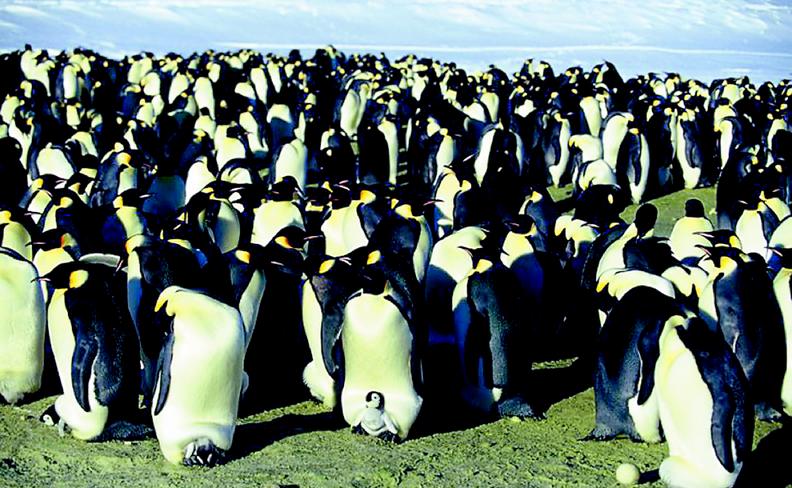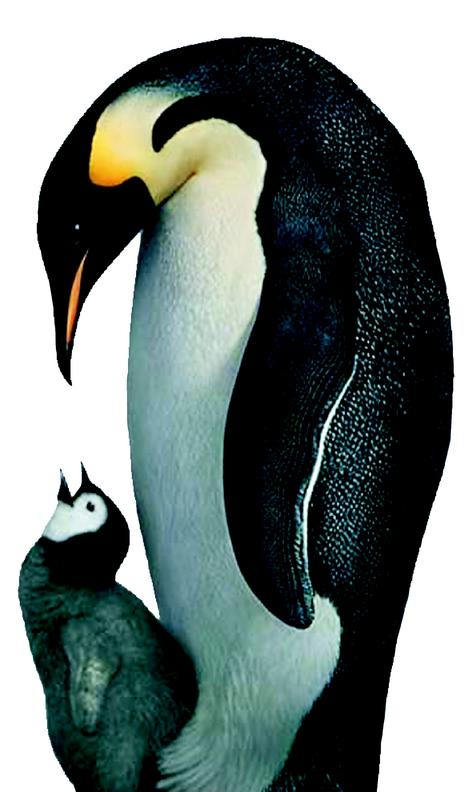The new French export March of the Penguins goes the animal route. But it does manage to throw in a few baby animals–so, you know, double gold.
Freshman director Luc Jacquet adds to a growing list of admirable French animal films, from The Bear to Microcosmos to Winged Migration to, um, Baxter. (OK, maybe that last one–a black comedy about a sadomasochistic pit bull–isn't quite in the same category.) Jacquet's film, produced with the cooperation of the National Geographic Foundation (sort of the Good Housekeeping Seal of Approval for nature photography), is a simple but captivating portrait of life on the Antarctic ice floes for the regal Emperor penguin.
Each year, like clockwork, the Emperor penguins embark on an epic march across some 70 miles of frozen tundra. The penguins are abandoning their fertile oceanside hunting grounds for the landlocked shelter of their traditional breeding grounds. It is, as portrayed in the film, a dangerous journey from which many will not return.
Along the way, we are treated to soothing narration from none other than Morgan Freeman. Now, at this point in time, I could really do without Morgan Freeman in the wise, old narrator role. In the last six months, I've seen him perform that part in Million Dollar Baby, Unleashed, War of the Worlds and March of the Penguins. He's great at it–don't get me wrong. The cliché is wearing thin is all. How about throwing James Earl Jones a bone once in a while, Hollywood?
C'est la vie. It could be worse. Apparently, the original French version of March of the Penguins had a full “script” that featured the penguins talking to one another in cute voices. Wisely, the film's American distributor, Warner Independent Pictures, chose to flush the ludicrous penguin dialogue (as well as composer Emilie Simon's sub-Björk soundtrack) and go with simple narration and an unintrusive orchestral score. With all the French pretension swept away, the film is free to function as exactly what it is: nice pictures of cute animals.
The film never shies away from the harsher aspects of meeting, mating and birthing young out in the roughest climate on Earth. It does make note of the steep attrition rate for fathers, mothers and babies. But the film never lingers on these moments. Instead, it presents the whole of penguinkind (penguinity?) as one miraculous story of struggle and survival. With their breeding ground located some week's trudge from the ocean, the penguins are required to go without food for as long as five months at a stretch. In order to feed their young during the long, sunless winter, mothers must walk the 70-some miles to the ocean and then make a grueling return trip. Those that fail are treated to some poetic metaphor by Mr. Freeman, who notes that many birds, “disappear back into the white.” Classy.
The film is a pleasure to watch with its grand yet intimate imagery and haunting black-and-white cinematography. (The film is in color, but there ain't a whole lot other than black and white in the Antarctic.) Thanks to the beautiful scenery and well-studied subject matter, emotions fly fast and furious in this earthbound documentary. Audiences are invited to laugh, cry, cheer and mostly marvel at the sheer will of life on Earth.
The “theme” that March of the Penguins is trying to get across is that “love finds a way.” After watching hoards of penguins waddle dozens of miles across a frozen glacier in winds up to 100 miles an hour, perform their tender mating rituals in temperatures approaching 70 below zero, go nearly half the year without eating and balance a big fat egg on their knees for a few months–all in the name of procreation–you might just think twice when complaining about your last “bad” date. Sure, the penguins are only acting on centuries of animal instinct, but–in the eye of Jacquet's camera–their devotion seems like the grandest romance on Earth. It's enough to give animal lovers the warm fuzzies.




